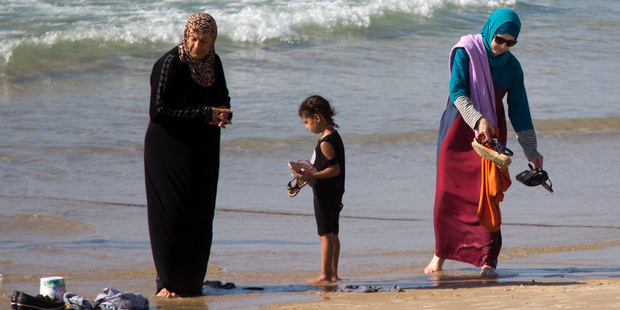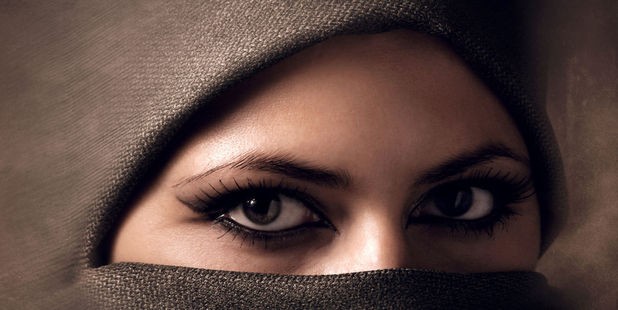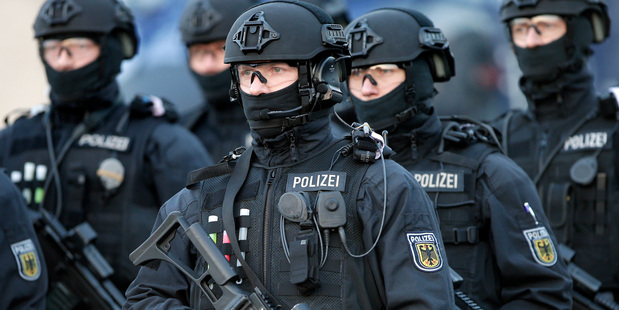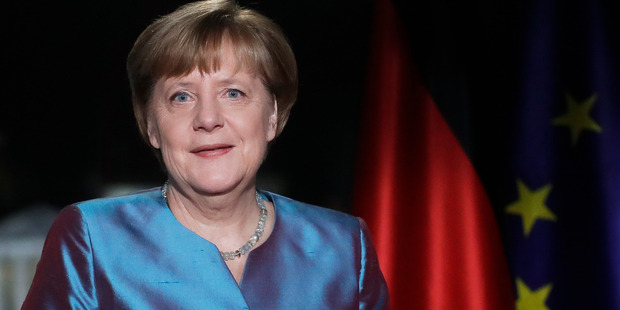- Joined
- Apr 15, 2006
- Messages
- 22,613
- Reaction score
- 20,488
- Points
- 113
- Location
- Sth Auck, NZ
- Members Ride
- HSV VS Senator, VX Calais II L67
http://www.nzherald.co.nz/world/news/article.cfm?c_id=2&objectid=11780138
Muslim parents must send children to mixed swimming lessons in Switzerland, European court rules

The couple, who are of Turkish origin, had appealed after being fined for keeping their daughters out of mixed-gender. Photo / AP
Muslims girls in Switzerland must not be exempt from mixed swimming lessons, the European Court of Human Rights (ECHR) has said, in a potentially groundbreaking ruling.
The court in Strasbourg threw out an appeal that had been brought by a Muslim couple who said they should be allowed to let their daughters sit out swimming lessons with boys.
It was not a violation of the pupils' human rights to make them take part in mixed swimming lessons, the court ruled, adding that schools has a "special role" in integrating young children, especially those from foreign backgrounds.
"The children's interest in a full education, thus facilitating their successful social integration according to local customs and mores, prevailed over the parents' wish to have their children exempted from mixed swimming lessons," the ECHR said in its ruling.
The couple, who are of Turkish origin, had appealed after being fined for keeping their daughters out of mixed-gender, mandatory public-school swimming lessons for reasons linked to their Muslim faith.
They were both "fervent practitioners of the Muslim religion," the ECHR said.
The ruling comes after Germany's highest court ruled in December that Muslim girls must take part in swimming lessons with boys.
The country's constitutional court said that girls who objected to the mixed lessons on religious grounds could wear the so-called "burkini."
The ECHR was set up to enforce the European Convention on Human Rights, and is not part of the European Union.
- Daily Telegraph UK
Muslim parents must send children to mixed swimming lessons in Switzerland, European court rules

The couple, who are of Turkish origin, had appealed after being fined for keeping their daughters out of mixed-gender. Photo / AP
Muslims girls in Switzerland must not be exempt from mixed swimming lessons, the European Court of Human Rights (ECHR) has said, in a potentially groundbreaking ruling.
The court in Strasbourg threw out an appeal that had been brought by a Muslim couple who said they should be allowed to let their daughters sit out swimming lessons with boys.
It was not a violation of the pupils' human rights to make them take part in mixed swimming lessons, the court ruled, adding that schools has a "special role" in integrating young children, especially those from foreign backgrounds.
"The children's interest in a full education, thus facilitating their successful social integration according to local customs and mores, prevailed over the parents' wish to have their children exempted from mixed swimming lessons," the ECHR said in its ruling.
The couple, who are of Turkish origin, had appealed after being fined for keeping their daughters out of mixed-gender, mandatory public-school swimming lessons for reasons linked to their Muslim faith.
They were both "fervent practitioners of the Muslim religion," the ECHR said.
The ruling comes after Germany's highest court ruled in December that Muslim girls must take part in swimming lessons with boys.
The country's constitutional court said that girls who objected to the mixed lessons on religious grounds could wear the so-called "burkini."
The ECHR was set up to enforce the European Convention on Human Rights, and is not part of the European Union.
- Daily Telegraph UK



